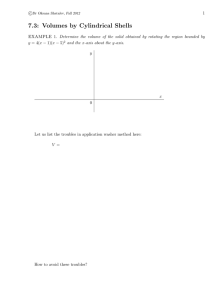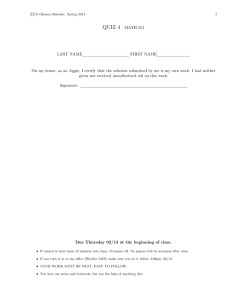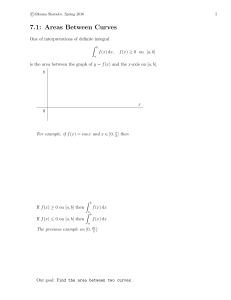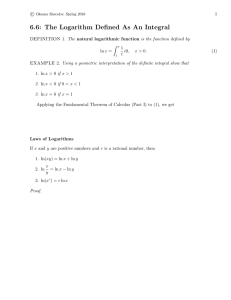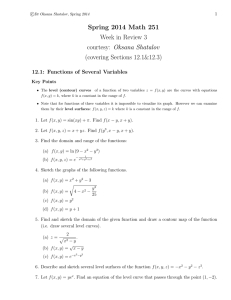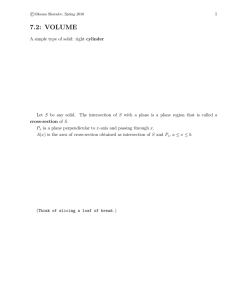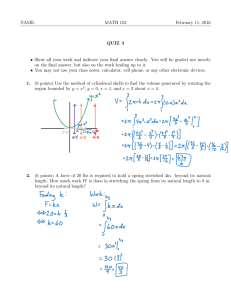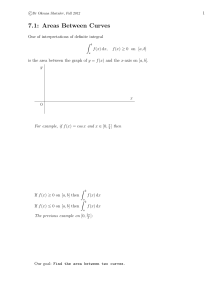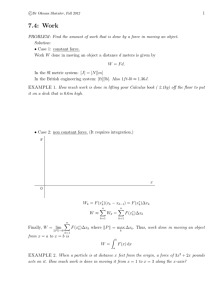Document 10581176
advertisement
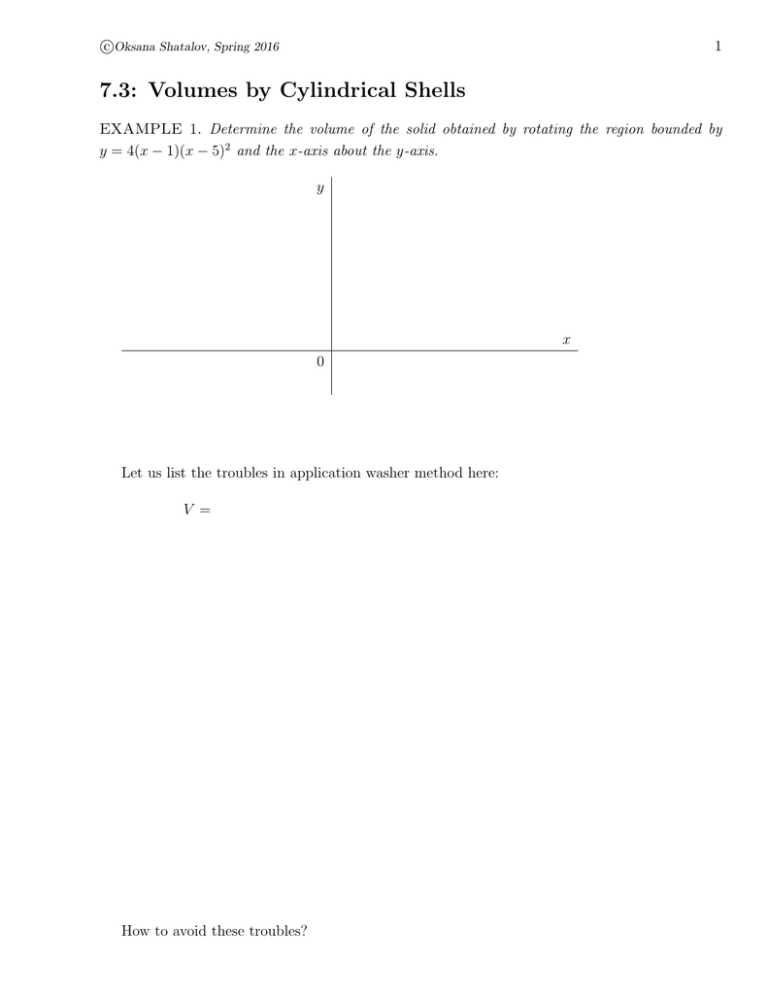
c Oksana Shatalov, Spring 2016 1 7.3: Volumes by Cylindrical Shells EXAMPLE 1. Determine the volume of the solid obtained by rotating the region bounded by y = 4(x − 1)(x − 5)2 and the x-axis about the y-axis. y x 0 Let us list the troubles in application washer method here: V = How to avoid these troubles? c Oksana Shatalov, Spring 2016 2 Unlike the washer method in shell method the cross sections are always parallel to the axis of revolution. Think of cutting your solid by a cylindrical cutter centered on the axis of revolution and pushed down into the solid. A cylindrical shell is a solid bounded by two concentric circular cylinders with the same height. The volume of the cylindrical shell: Solution of Example 1: c Oksana Shatalov, Spring 2016 3 SUMMARY ( Method of Cylindrical Shells) • Area of cross sections: A(x) = 2π(radius)(height) Z b A(x) dx. • For rotation about a vertical axis we use V = a Z For rotation about a horizontal axis we use V = d A(y) dy c Note: Exactly opposite of washer method. • For the limits of integration we take the only range of x or y covering one side of the solid (not the complete range). EXAMPLE 2. Find the volume of the solid obtained by rotating the region enclosed by the curves y = x − x2 and y = 0 about the line x = 2. y x 0 c Oksana Shatalov, Spring 2016 4 EXAMPLE 3. Set up, but do not evaluate, the volume of the solid obtained by rotating the region √ enclosed by the curves y = 3 x, x = 8, y = 0 about the x-axis using the method of cylindrical shells and then using the washer method. y x 0 EXAMPLE 4. Set up, but do not evaluate, the volume of the solid obtained by rotating the region enclosed by the curves y = cos x, x = 0, x = π/2 and y = 0 about the line y = 1 using the method of cylindrical shells and then using the washer method. y x 0
